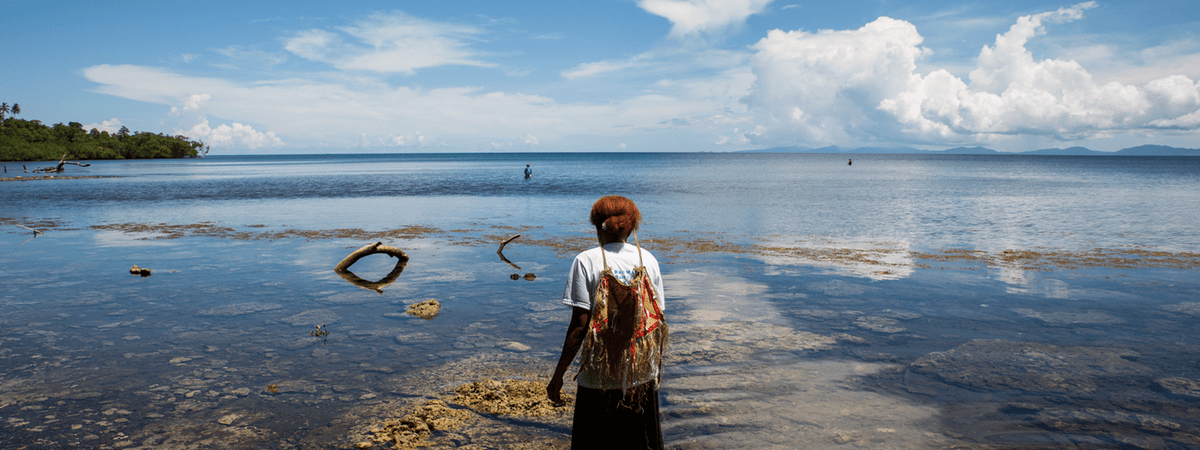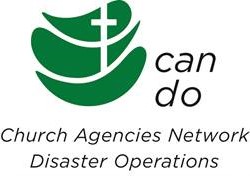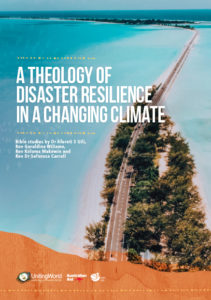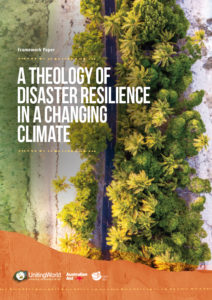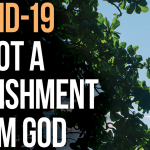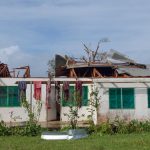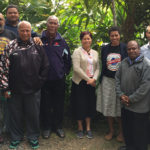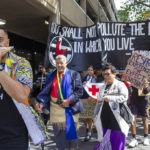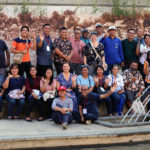Disaster Readiness and Climate Change (Pacific Region)
Cyclones and droughts are increasing the frequency and intensity across the Pacific. We support our partners to prepare vulnerable communities and reduce the impacts of natural disasters. $1 spent in preparedness saves $15 in response later. This now includes pandemics like COVID-19.
Activities include community-based risk assessment and contingency planning, training networks of disaster response chaplains and resourcing our partner churches with Christian theology that gives hope and inspires faith-filled action.
Part of this program includes working ecumenically through the Church Agencies Network-Disaster Operations consortium (CAN-DO) funded by the Australian Government as part of the Australian Humanitarian Partnership Program.
Resources
UnitingWorld has taken the lead within CAN-DO on coordinating the writing and development of a ‘Theology of Disaster Resilience in a Changing Climate.’ This work, undertaken by Pasifika theologians following a participatory baseline survey across four Pacific countries, is a resource for communities and churches to explore the meaning of resilience, preparedness and suffering during disaster from a biblical point of view. These resources are available for download here.
Our ImpactWe and our partners have been able to respond to COVID-19 and TC Harold in Tonga, Solomon Islands, PNG, Vanuatu, Fiji, Kiribati and Tuvalu. Partners across Tonga, Kiribati, Tuvalu and Fiji participated in regional training of Disaster Recovery Chaplaincy Networks and are now running training workshops at the national level to build their teams of qualified and ready first responders to support communities in the wake of disaster. In Tuvalu, a song about gender based violence has been written and released. In Tonga and Solomon Islands, much needed water and sanitation facilities have been built. In Tonga, 47 Ministers and theological students have now been trained in Disaster Recovery Chaplaincy, covering modules in trauma counselling, keeping people safe and the nature of disaster. In Kiribati, 29 church leaders trained and qualified as Disaster Recovery Chaplains. This group will respond to disaster recovery needs in communities across 18 of the 23 inhabited islands. In Solomon Islands, radio segments led by church leaders have reinforced positive messages about hygiene, preparedness and addressing gender based violence; reaching around 70 per cent of the population. In Tuvalu, 14 church leaders qualified as Disaster Recovery Chaplains. This group will support communities in seven islands to help people deal with the stresses and impacts of COVID-19. An estimated 75 per cent of the Tuvaluan population (7,984 people) have been reached through a nation-wide TV and radio campaign focusing on faith, gender equality and protection and COVID-19. Twenty new water tanks were installed throughout Tonga. These have directly benefited more than 83 people (57 per cent women and 15 per cent people with disabilities) and helped another 124 indirectly. In Vanuatu, COVID-19 related sermons were played on national television and livestreamed on Facebook (receiving 114 comments and 257 likes). |
Support this project
You can help vulnerable communities become disaster ready. Click here to donate now.
Media
Fiji, Vanuatu, PNG, Solomon Islands
Methodist Church in Fiji, Presbyterian Church in Vanuatu, United Church in Papua New Guinea, United Church in the Solomon Islands
Climate Resilience

